AI song makers are no longer just a futuristic idea, they’re already here, and they’re making waves in the music world. Imagine a computer creating a catchy tune that rivals songs from top artists. Sounds wild, right? Some people are excited about this, seeing it as a new tool for creativity, while others are a bit uneasy, wondering if AI is about to take over the music scene.
So, let’s break it down. What’s happening with AI song makers, why do they matter, and how are they transforming music as we know it?
What Are AI Song Makers?
AI song makers are tools that use algorithms and machine learning to create music. Instead of a human sitting at a piano or strumming a guitar, AI systems analyze tons of data from existing songs to learn patterns. Then, they use this knowledge to generate new melodies, beats, and even full tracks.
Here’s how it works:
- Analyzing Music: AI studies thousands of songs to understand what makes them appealing. It looks for patterns in rhythm, melody, harmony, and structure.
- Creating New Music: After learning from these examples, the AI combines its understanding of music to compose something original. It’s like having a virtual composer who works at lightning speed.
This process has given rise to tools that make creating music easier for everyone, even people who don’t know much about music. For example, an AI song maker might analyze hundreds of pop songs to understand what makes a hit. It could then use this knowledge to compose a brand-new pop track that feels familiar yet original.
Popular Tools for AI Song Makers
AI song makers come in all shapes and sizes. Some focus on professional-grade compositions, while others are perfect for beginners who just want to experiment. Here are a few standout examples:
1. AIVA (Artificial Intelligence Virtual Artist): AIVA is widely used for creating music for films, video games, and commercials. It can produce complex, classical-style pieces that sound like they were written by a human composer.
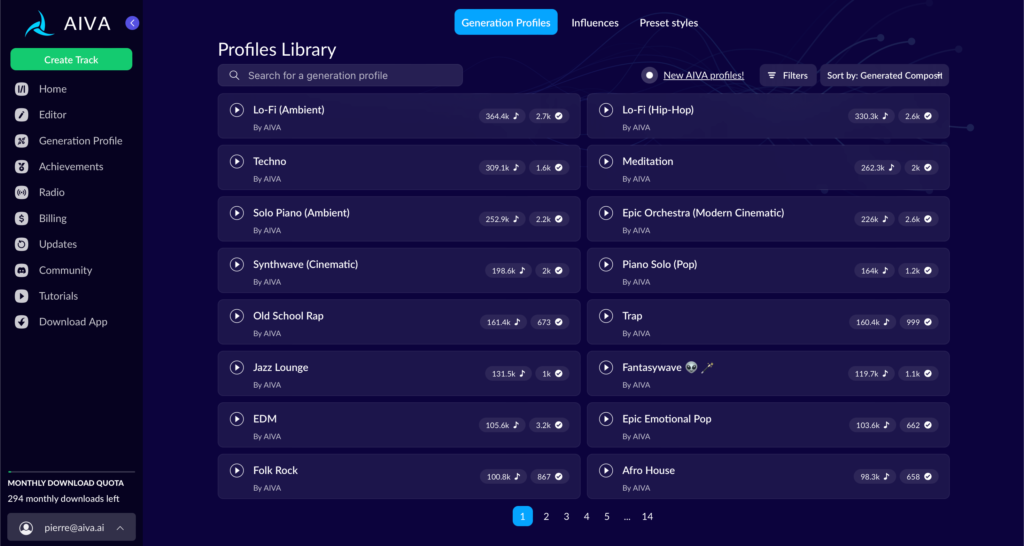
2. Suno: Suno stands out for its user-friendly interface. It allows users to adjust and refine their compositions easily. You can tweak melodies, add layers, and get the perfect sound without much effort.
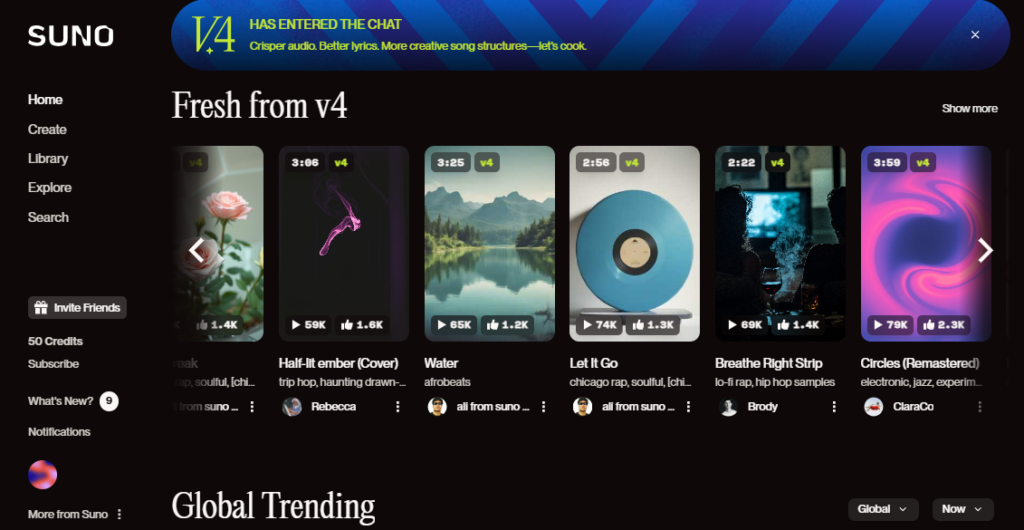
3. Udio: This tool offers a variety of genres, from pop to jazz. It’s also great for collaboration, letting multiple users work on a track in real time.
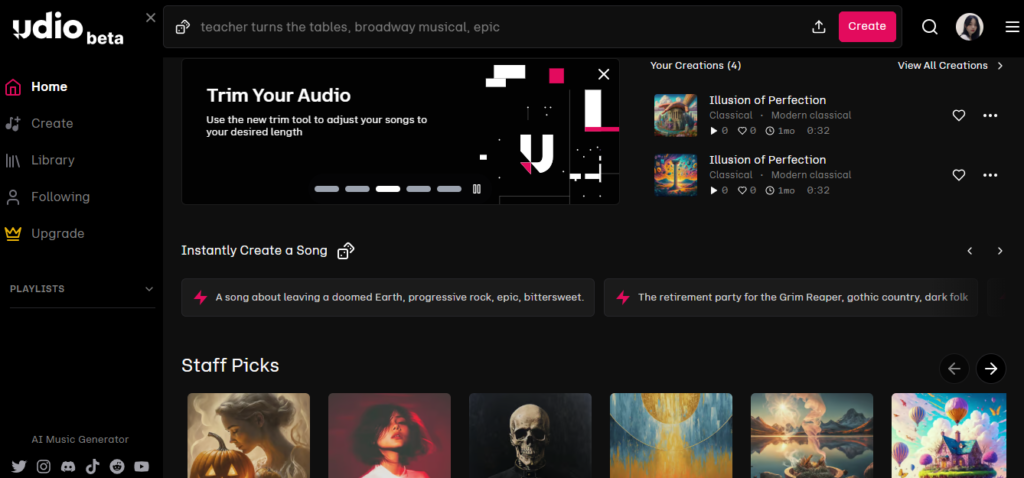
Each of these tools makes music creation faster, cheaper, and more accessible than ever before.
Why Are AI Song Makers Becoming Popular?
AI song makers are gaining popularity for a few simple reasons:
- Speed: Writing music takes time, but AI can compose songs in minutes. This is a game-changer for industries like advertising, where quick turnarounds are essential.
- Cost: Hiring a human composer can be expensive, but AI tools provide a more affordable alternative without compromising on quality.
- Accessibility: Even if you don’t know how to read music or play an instrument, you can use AI tools to create something amazing.
These benefits make AI song makers appealing not just to professionals but also to hobbyists, small business owners, and content creators. For example, a small business owner creating a promotional video can use an AI song maker to add a custom soundtrack without breaking the budget.
How Do People Feel About AI Song Makers?
Not everyone is ready to embrace AI in music. Some are amazed by the technology, while others question if music made by a machine can ever have the same soul as music created by humans.
People often judge AI-generated music based on who made it. If listeners know a song was created by AI, they might rate it lower than if they think a human composed it. This is called “composer bias.”
Studies show that when people listen to music without knowing its origin, they rate AI and human compositions similarly. But as soon as they find out it’s from AI, their opinions shift. This bias is like how blind auditions in orchestras help judges focus on the music, not the performer’s identity. It raises an interesting question: Should we judge music by how it sounds or by who or what made it?
But we also see some people are starting to see AI tools as actual musicians. This shift happens when we think of AI as playing a specific role, like a composer or producer.
Acceptance of AI as Creators
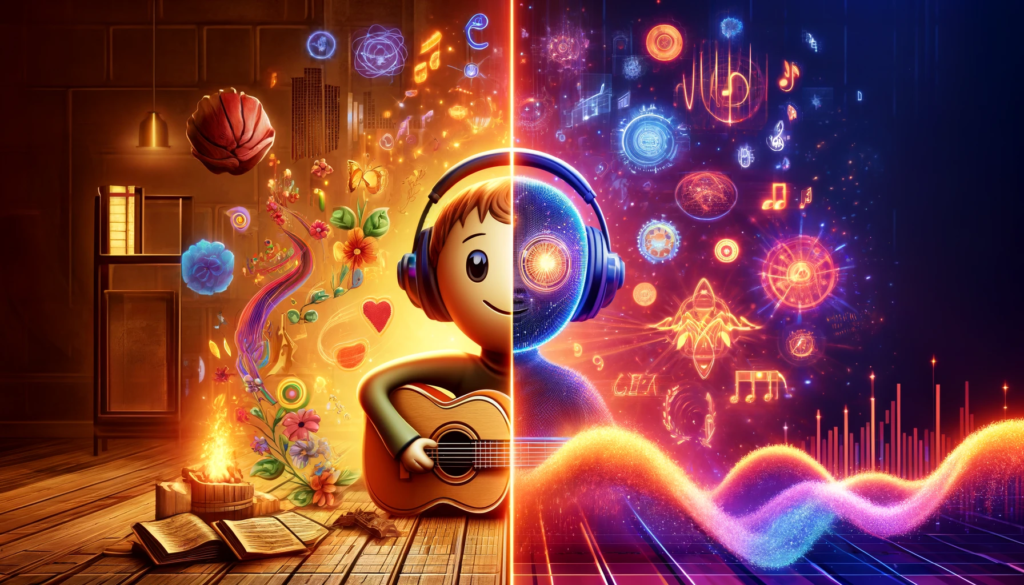
When AI is viewed as fulfilling the role of a musician, people tend to accept its creations more. It’s easier to enjoy a song when you think of AI as just another tool in the creative process, much like a synthesizer or drum machine.
AI developers often give these tools human-like qualities to make them more relatable. For example, they might design an AI with a name or personality, helping people feel more comfortable with its involvement in music creation.
Can AI Song Makers Truly Be Creative?
This is one of the biggest debates in the music world right now. Creativity is often seen as a human trait, tied to emotions, experiences, and personal expression. But AI challenges this idea.
AI doesn’t have emotions, but it can mix and match patterns in ways that feel fresh and creative. For instance, David Cope’s AI system, Emily Howell, has composed music that critics find both original and enjoyable. However, some say it lacks the “soul” of human-made music.
AI music also raises questions about ownership. If an AI tool writes a song, who owns it? The programmer? The company that built the AI? Or the person who used the tool? These legal and ethical issues are still being worked out, making this an evolving area.
Emotional Impact of AI Music
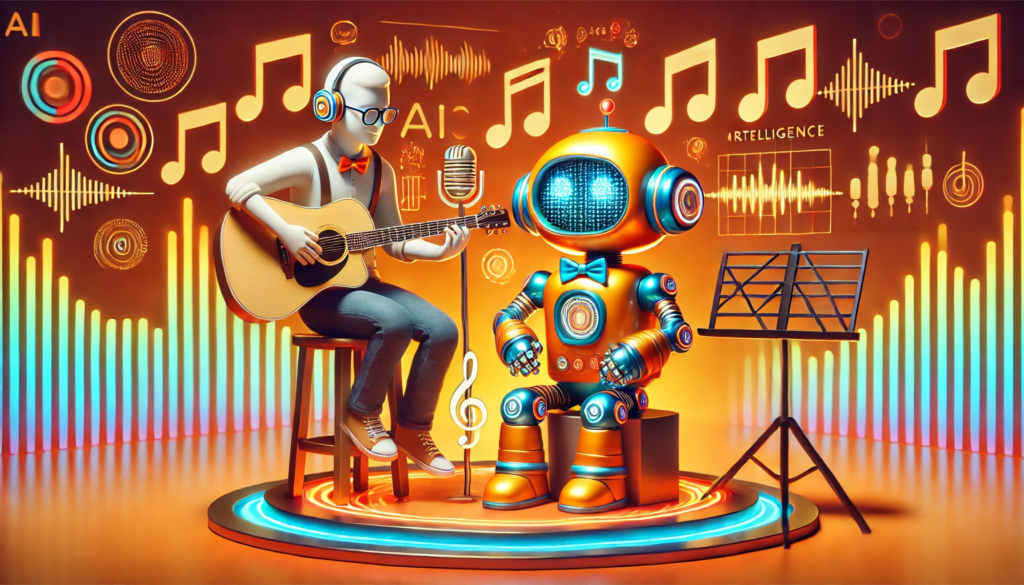
Surprisingly, AI music can make us feel just as much as human-composed music. Studies show that when listeners don’t know who made a song, they often respond emotionally in the same way.
How AI Creates Emotional Music?
AI achieves this by analyzing patterns that evoke specific feelings. For example, it might use a minor key to create sadness or a fast tempo to build excitement. By mimicking these emotional triggers, AI song makers can produce music that connects with listeners.
This challenges the idea that emotion in music must come from personal experience. Instead, it suggests that patterns and techniques can be enough to stir emotions.
Genre Bias in AI Music
Interestingly, people are more open to AI in some genres than others. For example, electronic music, which already relies heavily on technology, is often seen as a natural fit for AI. Classical music, on the other hand, is viewed as requiring deep human creativity, making it harder for listeners to accept AI in this space.
As AI music becomes more common, these biases might start to fade. Increased exposure to AI-generated tracks could help people appreciate them for what they are—innovative creations that blend technology and art.
The Future of AI Song Makers
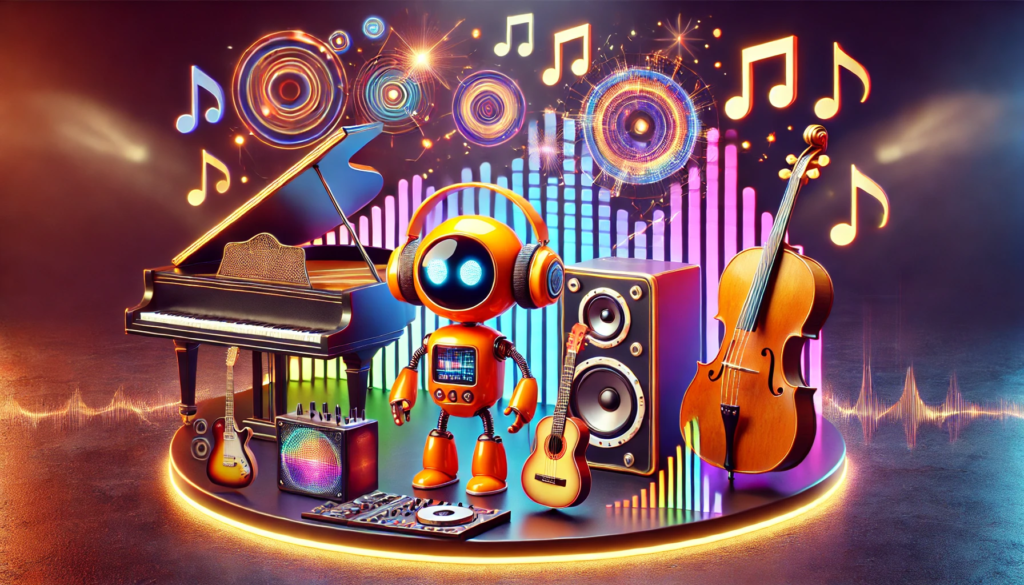
The rise of AI song makers is just the beginning. As these tools improve, they might not only create songs but also collaborate with human artists in new ways. Imagine a future where AI and humans work together to make music that pushes the boundaries of creativity.
We’re also likely to see more personalized music experiences. AI could create custom playlists based on your mood, compose a song for a special occasion, or even write a tune just for you.
AI song makers are shaking up the music world in ways we couldn’t have imagined a decade ago. They’re fast, affordable, and accessible, opening up music creation to everyone. But they also raise big questions about creativity, emotion, and what it means to be an artist.
As we move forward, one thing is clear: AI is here to stay in the music industry. It’s not about replacing human musicians but adding new tools to the creative process. So, are AI song makers the future of music? Only time will tell, but one thing’s for sure, this is an exciting time to be a music lover.
